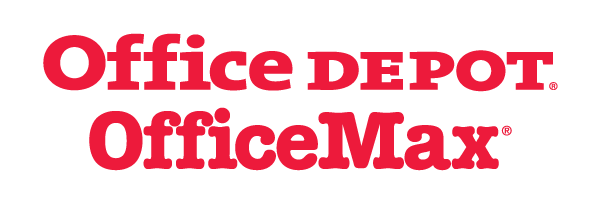 |
||||||||||||
| Archive | Subscribe | Printer Friendly | Send to a Friend | www.beautyschools.org | ||||||||||||
|
What's Hot
We are stronger together! The time is NOW to schedule meetings with your Members of Congress during the 2020 Government Relations Summit & Hill Day. We’ve created a handy tip sheet, letter templates, and made it easy for you to identify and get some time on your lawmakers’ calendars to advocate on behalf of your school and the industry.
Webinar 1: Getting Prepared For Your D.C. Appointment
But first, you need to register now and join your fellow school owners, faculty, students and employers to advocate on Capitol Hill for the beauty industry. Learning how to share succinct, effective messages with your lawmakers and how to effectively use social media for advocacy, are among the skills you’ll learn during this event. 2020 Government Relations Summit & Hill Day
Even if you can’t join us on Capitol Hill, you can still join the #IncludeBeauty campaign to protect our schools, students and employees from the College Affordability Act, a House bill approved in Committee by the Democrat leadership of the House Education and Labor Committee. The bill is the most comprehensive legislative attack we have seen on the cosmetology sector due to multiple damaging provisions directed at for-profit colleges. Communicate directly with Members of Congress to oppose the House College Affordability Act, and ask your employees and students to do so too. Letter templates and instructions are available here.
Yay… they are finally at your school! Is your team ready? Remember that a potential student walks in your door with 3 thoughts in mind: Can I do It? Can I afford it? Will I fit in? Does your team have the necessary process in place to address these concerns? Are they prepared to overcome any and all objections? Does the prospect leave feeling that you care? These questions and more are addressed by Nancy Rogers and Vicki Maurer of The Source For Training during this session. Learn how to:
Join us for Conducting A Commitment-Based Interview. Don't Sell; Let Them Buy Date: February 20, 2020
Applications are now being accepted for volunteers and speakers for 2020 AACS conferences. Volunteers for the CEA & AMP Convention and the AACS Annual Convention are key to the events' success. Join us as a volunteer event committee member. The AACS 2020 theme is: "It's Time To Engage: Advocate. Ignite. Rise." We want compelling programming that will leave attendees wanting more. We want your ideas for topics and credentials as a speaker to share your knowledge and expertise. Submit your application to volunteer here. Submit your application for speaker here.

We have partnered with OfficeMax to provide AACS members a special benefit. Businesses using the Office Depot discount program see significant savings. Take advantage of the program today and you could save thousands of dollars per year! To learn more, click here.  Kick off the new year with a new look and support the AACS Government Relations Committee advocacy efforts at the same time. Contact AACS at info@beautyschools.org to request an order form for one of these nifty T’s.  Five years ago, Angela Thorson won a Beauty Changes Lives CND Tippi Hedren Nail Scholarship. Today, she is celebrating the launch of BFF Nail Spa Boutique. Angela personifies passion and perseverance as she literally “stands up” to life’s challenges – including an injury that threatened her career as a Nail Professional. Read her inspiring tale recently shared on NAILS.
GRC News
Federal Updates U.S. Department of Education January 24, 2020 – The Department published an Electronic Announcement providing specific information to assist schools in reconciling the Federal Pell Grant (Pell Grant) Program. The Department defined Pell Grant Reconciliation as the process by which a school reviews and compares Pell Grant data recorded on the Department of Education’s (the Department’s) systems with the information in the school’s internal records. This process should be performed on a regular basis and is recommended at least monthly. The Department further stated that in addition to regular monthly reconciliation of Pell Grant data, a final reconciliation should be performed as soon as possible after final scheduled disbursements have been made for the award year. January 27, 2020 – The Department published a notice in the Federal Register announcing it is submitting the Lender's Interest and Special Allowance Request & Report, ED Form 799 for approval. The information collected on the ED Form 799 is needed to pay interest and special allowance to holders of Federal Family Education Loans, for internal financial reporting, budgetary projections, and for audit and lender reviews by the Department, Servicers, External Auditors and General Accounting Office (GAO). The legal authority for collecting this information is Title IV, Part B of the Higher Education Act of 1965, as amended by the Higher Education Reconciliation Act of 2005 (“the HERA”), (Pub. L. 109-171). The Department is requesting the continual approval for regulatory sections 682.304 and 682.414. The Department is requesting an extension of the current information collection, the William D. Ford Federal Direct Loan Program—150% Limitation. On July 6, 2012, the Moving Ahead for Progress in the 21st Century Act (MAP-21) was signed into law. MAP-21 included two changes to the William D. Ford Federal Direct Loan (Direct Loan) Program. Specifically, MAP-21 amended section 455 of the Higher Education Act of 1965, as amended (HEA) to extend the 3.4 percent fixed interest rate that applies to Direct Subsidized Loans made to undergraduate students to loans for which the first disbursement is made before July 1, 2013. Second, the law placed a limit on Direct Subsidized Loan eligibility for new borrowers on or after July 1, 2013. Specifically, a new borrower on or after July 1, 2013 is no longer eligible to receive additional Direct Subsidized Loans if the period during which the borrower has received such loans exceeds 150 percent of the published length of the borrower's educational program. Additionally, the borrower becomes responsible for accruing interest on any Direct Subsidized Loan made to the borrower on or after July 1, 2013 if he or she is enrolled after reaching this 150 percent limit. The Department is proposing an extension to the current information collection 1845-0038 that is expiring. This collection pertains to the recordkeeping requirements contained in the regulations related to the administration of the Subpart K—Cash Management section of the Student Assistance General Provisions. The regulatory language has not changed. These program regulations are designed to provide benefits to Title IV, HEA applicants, and protect the taxpayers' interest. The information collection requirements in these regulations are necessary to provide students with required information about their eligibility to receive funding under the federal student financial aid programs and to prevent fraud and abuse of program funds by allowing students to reduce or reject aid being offered as well as being made aware of when such funding can be expected to be available. January 28, 2020 – The Department published a notice in the Federal Register proposing an extension to the Consolidation Loan Rebate Fee Report information collection system. The information collected on the Consolidation Loan Rebate Fee Report will be used to document Federal Consolidation loans held by lenders who are responsible for sending interest payment rebate fees to the Secretary of Education using ED Form 4-619.
U.S. Congress – Newly Introduced Legislation of Note H.Res.811 – Providing for consideration of the bill (H.R. 3621) to amend the Fair Credit Reporting Act to remove adverse information for certain defaulted or delinquent private education loan borrowers who demonstrate a history of loan repayment, and for other purposes, and providing for consideration of the Senate amendment to the bill (H.R. 550) to award a Congressional Gold Medal, collectively, to the United States Merchant Mariners of World War II, in recognition of their dedicated and vital service during World War II. a. Status: Reported by House Committee on Rules, 1/27/20
State Update Maryland Legislators Propose State 90/10 Metric A bill was introduced in Maryland last week to close “the 90/10 loophole” by requiring for-profit colleges and trade schools, including cosmetology schools, to derive at least 10% of their revenue “from a source other than federal funds or institutional debt.” SB 294 would prohibit schools from enrolling new Maryland residents if they fail the state’s 90/10 rule for two consecutive years or two of their three preceding fiscal years. The bill, which is introduced by a resolution stating “predatory for–profit institutions of higher education and private career schools aggressively recruit veterans by recruiting on bases and at Veterans Affairs hospitals to access GI benefits and exploit the 90/10 loophole,” has 20 sponsors in the 47-seat Senate chamber. The Senate Education, Health and Environment Affairs Committee has scheduled a February 4, 2020 hearing on the bill. An identical House companion bill (HB 593) was introduced Monday with 19 sponsors – including House Appropriations Committee Chairwomen Maggie McIntosh (D-Baltimore) – and referred to the Appropriations Committee. In South Carolina, a bill to require for-profit colleges – including cosmetology schools – to display online the full price of a program or degree was introduced earlier this month by four Democratic House members. H4749 would also require the Department of Consumer Affairs to annually audit for-profit colleges to make sure they are “not publishing false or misleading data” regarding graduation rates, overall tuition costs for each program, tuition increases and job placement rates. The bill has been referred to the House Labor, Commerce and Industry Committee. Republicans currently hold 79 of the chamber’s 123 seats. Florida’s Senate Innovation, Industry, and Technology Committee unanimously adopted a Committee Substitute to SB 474 last week. The “Occupational Freedom and Opportunity Act” would reduce the course of instruction for barbering from 1,200 to 900 hours; allow for early licensure testing of barbers at 600 hours; provide for 1-to-1 licensure reciprocity of barbers; deregulate hair braiding, hair wrapping, body wrapping, the application of polish to fingernails and toenails, and makeup application; provide for 1-to1 licensure reciprocity for cosmetologists upon completion of a two-hour course on HIV/AIDS; and reduce the biennial CEU requirement for licensure renewal from 16 to 10 hours. The measure would also severely reduce the course of instruction required for specialist licensure: nail specialists from 240 to 150 hours; facial specialists from 260 to 165 hours, and; full specialists (combining both skin and nails) from 500 to 300 hours. Florida bills are typically considered by multiple legislative committees in each chamber. To this end, SB 474 was referred to the Senate Commerce and Tourism Committee. A non-identical Florida House companion bill, HB 1193, was favorably reported from the House Business and Professions Subcommittee last week by a vote of 12 to 3. This 143-page deregulation and occupational licensure reform bill would reduce the course of instruction for barbering from 1,200 to 600 hours. Other provisions of interest to AACS members – including the 1-to-1 licensure reciprocity of barbers and cosmetologists current licensed in another state and the reduction of hours required for specialist licensure – are similar those contained in SB 474. The bill is now in the House Government Operations and Technology Appropriations Subcommittee. This article contains additional information on these occupation licensure reform bills. The text of the bills listed in this report can be found in AACS’ Bill Tracking Portal. On the regulatory front, proposed rules were published in the Texas Register on January 3, 2020 to implement 2019 House Bill 2847 which reduced the course of instruction for cosmetology from 1,500 hours to 1,000 hours. Comments on the proposed rules may be submitted until February 3, 2020 by mail P.O. Box 12157, Austin, Texas 78711, by facsimile (512) 475-3032, or electronically: erule.comments@tdlr.texas.gov. The proposed 1,000 hour cosmetology curriculum can be found here. According to a Texas Department of Licensing and Regulation (TDLR) email, “the Advisory Board on Cosmetology is scheduled to meet on Monday, February 10, 2020 at 1:30 pm. The Advisory Board will review the public comments for the proposed rules and could recommend adoption.” TDLR has also proposed amendments to the barbers program rules that lowers the number of hours required to obtain a Class A Barber license from 1,500 to 1,000 hours. Comments are also due by February 3, 2020. Utah’s Division of Occupational and Professional Licensing officially published proposed amendments to the state’s Cosmetology and Associated Professions Licensing Act Rule earlier this month. A reduction of the required passing score for National Interstate Council of State Boards of Cosmetology exams from 75% to 70% are among the proposed modifications. Additionally, the proposed amendments would eliminate the current “good moral character” clause but retain a listing of crimes which may disqualify an applicant from becoming licensed. The rulemaking notice and text can be found by clicking on this link. Please do not hesitate to contact Brian Newman at bnewman@abingdonstrategies.com or by phone at 202-491-5254 with comments or questions. Upcoming State Hearings/Meetings February 4, 2020 at 1:00 p.m. – Maryland Senate Education, Health, and Environmental Affairs Committee Hearing on SB 294 February 6, 2020 at 1:00 p.m. – Maryland Senate Education, Health, and Environmental Affairs Committee Hearing on SB 280 February 10, 2020 at 9:00 a.m. – Texas Advisory Board on Barbering Meeting February 10, 2020 at 1:30 p.m. – Texas Advisory Board on Cosmetology Meeting State Bill Enactment Michigan SB 434 – Effective January 28, 2020
SB 434 also contains revised licensure reciprocity language that requires applicants to declare “that sanctions have not been imposed against him or her by a similar licensing or registration board of any other state.”
Additional State Bill Introductions Alaska HB 216 Kansas HB 2506 Mississippi SB 2127 Mississippi SB 2128
Member Events
The Flipped Classroom model has become one of the most commonly implemented educational models seen in classrooms today. Through this course, we will explore the basics of the flipped classroom, how and why it works to increase student retention, and go over steps to start incorporating flipped classroom elements in your courses. Members in the News
AACS is working members to achieve our legislative and regulatory objectives at the federal level, ensuring lawmakers don’t pass misguided legislation that could severely harm our industry. We need your help to tell the industry’s compelling story and save our industry from the negative consequences of harmful legislation. You can help by donating to help us fund this important public relations campaign, and by sharing stories and testimonials. To submit a donation, please click here. To submit a story, please click here. |
||||||||||||








